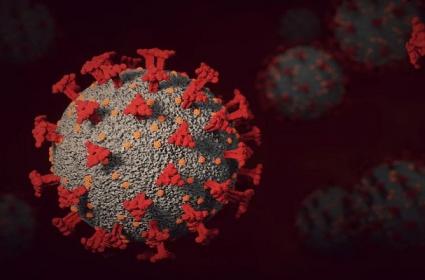New Omicron Covid Variant XE Symptoms

New Delhi: The coronavirus variant XE has been identified in India for the first time in Mumbai. The XE variant, which is a mutation of two Omicron strains, BA.1 and BA.2, was initially discovered in the United Kingdom.
What we know about COVID variant XE so far is as follows; This variant may be the most infectious COVID variant ever.
According to the World Health Organization (WHO), the XE mutation is 10% more infectious than the BA.2 sub-variant of Omicron.
The XE mutation is now being tracked as part of the Omicron variant, according to the WHO. Fever, sore throat, scratchy throat, cough, cold, skin irritation and discolouration, and gastrointestinal trouble are all signs of Omicron.
Also Read: JEE Main 2022 Exam Dates Rescheduled: Check New Timetable
Since it was initially discovered in the UK on January 19, 637 cases have been recorded so far.
The UK health body is studying three recombinant variants: XD, XE, and XF. The XD is a hybrid of the BA.1 Omicron variant and the XF. The XD, XE, and XF recombinant variants are being studied by the UK health authorities. The XD is a cross between the BA.1 Omicron type and the XF, which is a mix of the Delta and the BA.1.
According to reports, Susan Hopkins, the chief medical officer of the UK Health Security Agency (UKHSA), said that such variants are known as "recombinant" and die off "quite soon."
Thailand and New Zealand have both recognised the XE variant. If anything, more data is needed, according to the WHO, before a conclusion can be made on the mutation.
There is no indication that XE causes the illness to be more severe; all Omicron variants are less severe so far.
XE is a "recombinant" mutant of the Omicron strains BA.1 and BA.2. When a patient is infected with numerous COVID variants, recombinant mutations occur.
In research published in the British Medical Journal, UK specialists claim that the variants mix up their genetic material during replication, resulting in the formation of a new mutant variant.
The Centre, on the other hand, denies that a new Coronavirus XE variant has been discovered in India.
On Wednesday, the Union Health Ministry stated that current evidence does not support the occurrence of the XE variant of COVID, refuting media allegations that a case of the new mutant had been detected in Mumbai.
In a tweet, PIB Maharashtra stated, "Hours after report of detection of XE variant of Coronavirus in Mumbai, @MoHFW INDIA has said present evidence does not suggest the presence of the new variant."
It referred to a Health Ministry explanation of a COVID XE Variant case reported in Mumbai.
According to the Health Ministry, "FastQ data in respect of the sample, which is purported to be #XEVariant, were thoroughly examined by INSACOG genomic experts, who concluded that the genomic constitution of this variant does not connect with the genomic image of the 'XE' variant."
According to the ministry, the person who tested positive for #XEVariant is a 50-year-old woman who is completely vaccinated, has no comorbidities, and is asymptomatic.
"She had come from South Africa on February 10 and had no prior travel history. On arrival, she had tested negative for the virus," it said.
Earlier in the day, the Greater Mumbai Municipal Corporation said that one of the 230 samples tested positive for the XE variation in Mumbai as part of the COVID genome sequencing.
The World Health Organization has announced that a new COVID mutant variant is known as "XE" has been discovered in the United Kingdom and that it may be more transmissible than COVID-19's BA.2 sublineage. However, Indian virologists have stated that it is unclear if the variety is robust enough to create another COVID outbreak in the country, while also advising caution and COVID-appropriate behaviour.
XE is a COVID-19 recombinant of the Omicron BA.1 and BA.2 sublineages.
"The XE recombinant (BA.1-BA.2) was first detected in the United Kingdom on January 19 and more than 600 sequences have been reported and confirmed since," the WHO stated.















